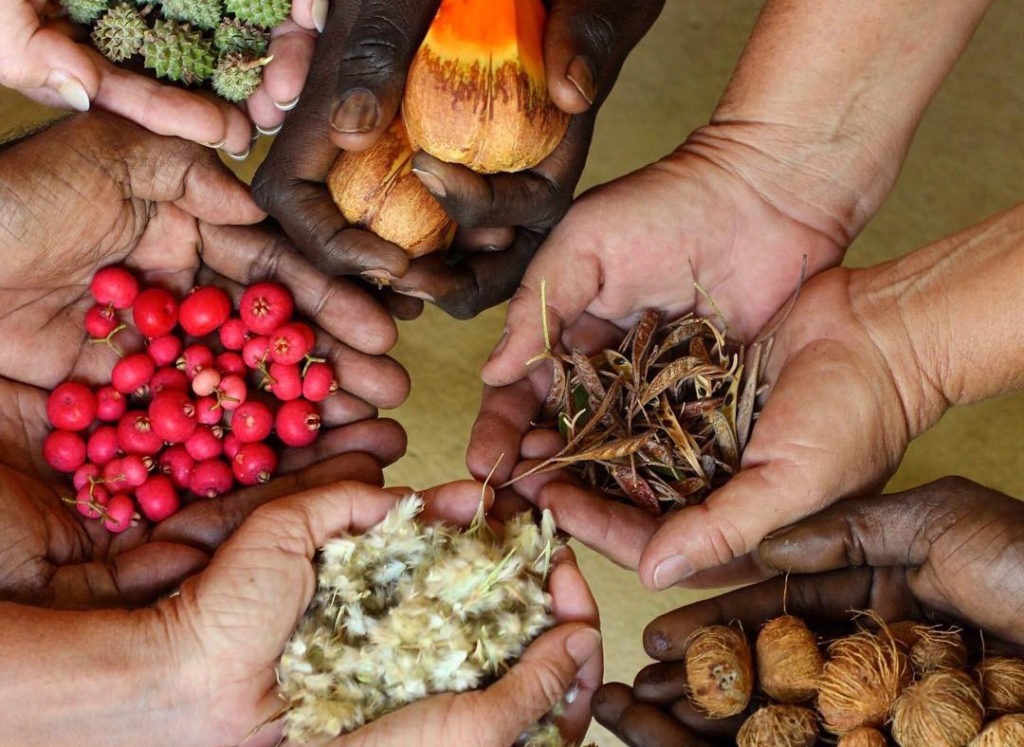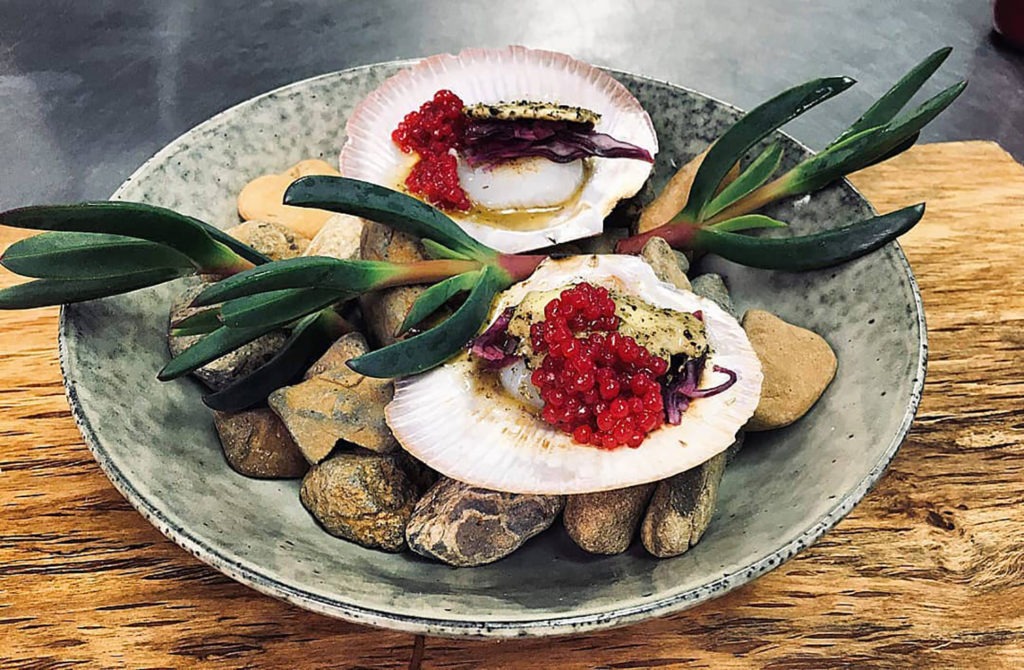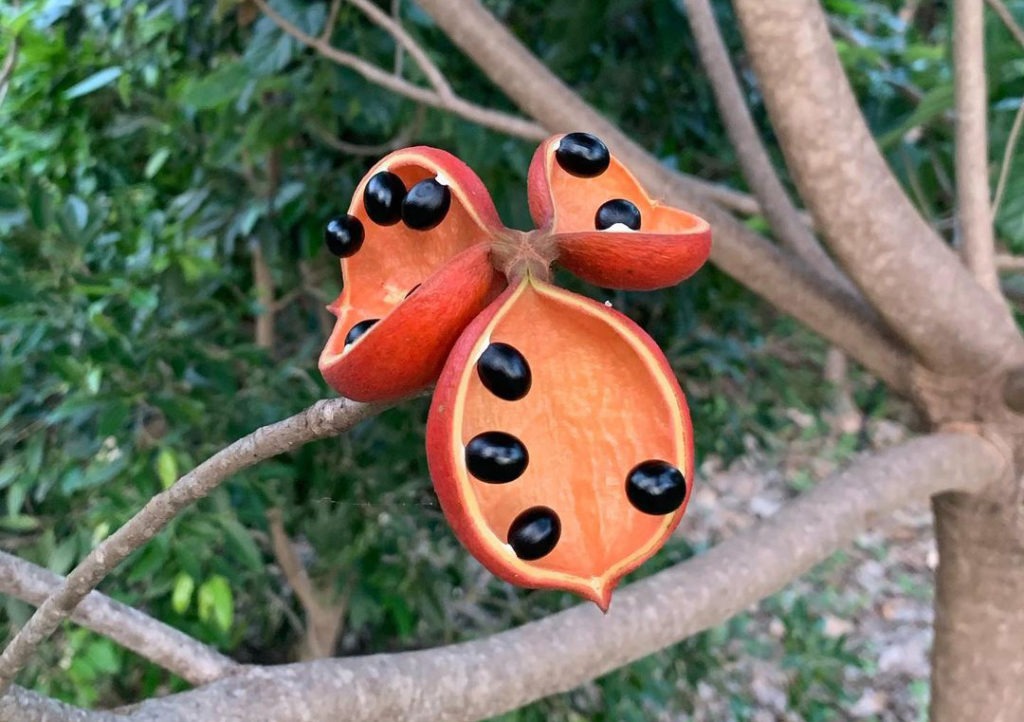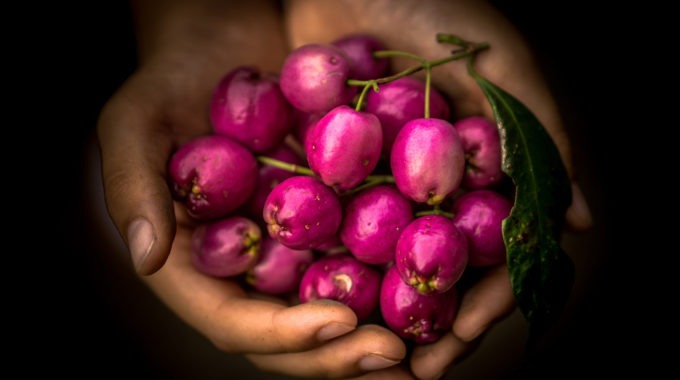An Indigenous-led bushfood industry
A $1.5 million collaboration between Indigenous Traditional Owners and Custodians and the University of Queensland will boost the burgeoning bushfood industry and help to create successful Indigenous businesses that will last for generations to come.
The Australian Research Council-funded five-year project, “A Deadly Solution: Towards an Indigenous-led bushfood industry”, will see researchers work with Indigenous communities to commercialise native bushfoods and ornamental plants.

The project features ethnobotanist and Mbabaram Elder Gerry Turpin and a team of academics, community members and business owners led by UQ Adjunct Professor and Indigenous chef Dale Chapman, who is also the CEO of My Dilly Bag.
“There are plenty of great bushfoods out there that most people have never heard of, seen or tasted,” she says. “So we’re thrilled to be working hand-in-hand with Indigenous communities to get them into the marketplace, marrying Traditional Knowledge with Western science. Together we’ll be developing exciting – and delicious – native Australian bushfoods, while creating sustainable, intergenerational Indigenous businesses.

The new funding will allow UQ to build the infrastructure and develop the science needed to grow high-yielding native plants and effectively store a harvest. The project will be working with Mbabaram Aboriginal Corporation, Batavia Traditional Owners and Stepping Black Indigenous Corporation – organisations which include Traditional Owners and Custodians from Batavia Downs, Mbabaram, Eidsvold and Cherbourg.
Collaborating food scientist Professor Melissa Fitzgerald says there are a number of candidates for potential supermarket-friendly bushfoods.
“A great example is the native peanut tree Sterculia quadrifida [also known as red-fruited kurrajong], which grows in far north Queensland,” she says. “It produces beautiful fruit that tastes like peanuts and contains good oils, but the tree is so tall it’s hard to harvest.
“This project will allow us to experiment with growing the tree on trellises and other frameworks, bringing the fruit within reach.”

UQ’s Pro-Vice-Chancellor (Indigenous Engagement) Professor Bronwyn Fredericks says the new collaboration will help to strengthen culture and knowledge among the younger people of participating communities, supporting Traditional Knowledge.
“We’ll be incorporating contractual arrangements that ensure long-term intellectual property protection of Traditional Knowledge,” she says. “This will give Traditional Owners entrepreneurial freedom to grow their businesses for generations now and into the future.”









